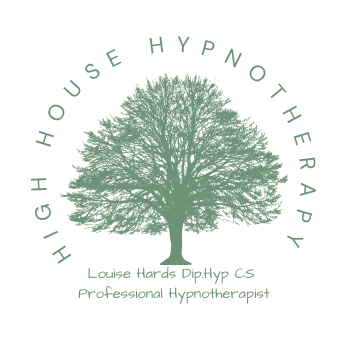Discover the Truth: Dispelling Myths About Hypnosis

Hypnosis, a powerful tool for personal transformation, has long been shrouded in mystery and misconception. If you were to ask passers-by on the street about their thoughts on hypnosis, you would likely encounter a range of responses, from ignorance to disbelief, to outright unease. It's time to set the record straight and debunk the myths that have hindered the understanding and acceptance of this transformative practice.

Myth #1:
You won't know what happened Contrary to popular belief, hypnosis does not induce a state of unconsciousness or amnesia. When under hypnosis, you enter a state of deep focus and relaxation, similar to experiences you may have had while watching a captivating film or engrossed in a good book. Your mind becomes singularly focused, filtering out distractions and allowing you to tap into your subconscious. Throughout the session, you remain awake, aware, and in control, with the ability to recall the entire experience if desired.
Myth #2:
They will control your mind One of the most prevalent myths surrounding hypnosis is the fear of losing control. While stage hypnotists may create entertaining shows with willing participants, it is important to distinguish between stage hypnosis and therapeutic hypnotherapy. During hypnosis, you cannot be made to act against your will or do anything that goes against your morals. You are fully in control of your actions, and if at any point you feel uncomfortable, you have the power to end the session. Hypnosis simply opens you up to suggestion, allowing you to tap into your inner resources and make positive changes.
Myth #3:
You may not wake up The fear of being trapped in a hypnotic trance is unfounded. Hypnotherapy sessions are carefully guided by trained professionals who have techniques in place to ensure a smooth and peaceful transition out of hypnosis. In the unlikely event of an emergency or if you decide to end the session prematurely, you have the freedom to do so. Your well-being and comfort are always prioritised.
Now that we have dispelled these common myths, let's explore strategies that hypnotherapists can use to increase clients' confidence in the process and dispel misinformation.
Renomination:
By using alternative terms such as "guided imagery," "visualisation," or "deep relaxation," hypnotherapists can help clients overcome any social stigma associated with the word "hypnosis." This approach allows for the same therapeutic results while addressing any preconceived notions.
Demystification:
By providing explanations using everyday terms, objects, experiences, and metaphors, hypnotherapists can remove the mystery and myth surrounding hypnosis. Understanding cultural influences and tailoring explanations to individual clients can further enhance their understanding and comfort.
Personalisation:
Hypnotherapists can tailor their approach to meet the unique needs and goals of each client. By framing hypnosis as an empowering tool for self-control or emphasizing its calming and peaceful elements, clients can feel more at ease and confident in the process.
Emphasising scientific findings:
Recent advancements in neurocognitive research have shed light on the mechanisms behind hypnosis. Clinical trials have demonstrated the efficacy of hypnotherapy in various areas, such as anxiety, pain management, smoking cessation, and irritable bowel syndrome. Sharing these scientific findings can provide clients with a sense of comfort and confidence in the process.
While we strive to demystify hypnosis and promote understanding, it is important to acknowledge the power of intrigue and expectation in the therapeutic process. Retaining a sense of wonder and curiosity can enhance the effectiveness of hypnotherapy. As we continue to unravel the truth about hypnosis, let us embrace the transformative potential it holds for personal growth and well-being.
ReferencesBarrett, D. (2006). Hypnosis in film and television. The American Journal of Clinical Hypnosis, 49(1), 13–30.Chant, D., Clohessy, D., Cowling, T., Gow, K., Mackie, C., & Moloney, R. (2006). Attitudes and opinions about hypnosis in an Australian city. Australian Journal of Clinical and Experimental Hypnosis, 34, 162–186.Kleinhauz, M., Dreyfuss, D. A., Beran, B., Goldberg, T., & Azikri, D. (1979). Some after-effects of stage hypnosis: A case study of psychopathological manifestations. International Journal of Clinical and Experimental Hypnosis, 27, 219–226.Meyerson, J. (2014). The myth of hypnosis: the need for remythification. International Journal of Clinical and Experimental Hypnosis, 62(3), 378-393.Palsson, O., Twist, S., Walker, M. (2019). A national survey of clinical hypnosis views and experiences of the adult population in the United States. Journal of clinical and experimental hypnosis, 67(4), 428-448.The myths surrounding Hypnosis



